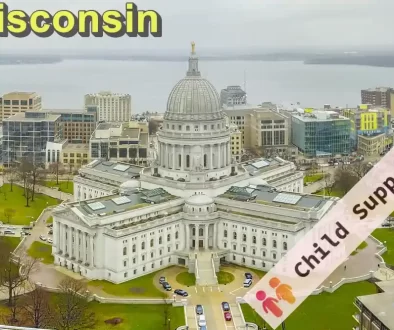Child Support in New York
The parents of a child have a moral obligation to support their child until adulthood. Sometimes, the parents may be separated or may never have been married. This makes it likely that one parent will leave the other with all the responsibility for the child. Child support laws have been established to enforce a legal obligation for both parents to take care of the child and to ensure that the child has a decent quality of life.
Child Support Process
Child Support Services in New York are provided by the Division of Child Support Enforcement (DCSE). DCSE handles child support applications, the establishment of orders, and the collection of payments that are due. Custodial parents who desire to open a child support case can make use of the application form at https://otda.ny.gov/programs/applications/5143.pdf. For cases with more than one child, an Additional Child Information form should be filled for each additional child, the form can be gotten from http://otda.ny.gov/programs/applications/5143B.pdf. While filling out the application, parents are required to provide details about themselves and their noncustodial counterparts. These details include full name, date of birth, residential address, race (optional), Social Security Number (SSN), phone number, marital status, relationship with the other parent, etc. Providing accurate information can prove very helpful in establishing the case on time.
The DCSE provides various services, some of which are aided by the validity of the information provided during the application process. Some of the services offered are:
- Location of the noncustodial parent. This is made much easier if the application contains the current contact address and valid phone number of that parent.
- Establishment of Parentage: When the noncustodial parent has been located, it may be necessary to establish parentage. This is especially applicable if both parents were not married. Both parents can either fill a voluntary acknowledgment of paternity, or a court can order genetic testing.
DCSE can also help parents who wish to modify their existing child support orders to better reflect the current financial situation.
Parents who apply for child support services from the DCSE are charged a $35 fee every year. This is only deducted after more than $550 has been collected and disbursed to the parent for that year. The fee is deducted for each child support case, so parents with multiple cases will pay the fee each time their child support payment on each case exceeds the threshold. This annual fee, however, does not apply to parents who have received Temporary Assistance for Needy Families (TANF) support at any point in time.
How Do You Receive Child Support?
There are two common options available for parents to receive their child support payments. These options are the Direct Deposit and the New York Child Support debit card.
The New York Child Support debit card is the default option for receiving child support payments. It is provided by the Bank of America and can be used anywhere Mastercard debit cards are accepted. The payments are loaded onto the card account once they become available and can be withdrawn or used to make purchases. Using this card makes it easy for parents to separate their child support from general home expenses and income, account balance inquiries are free at all ATMs. For more details on the card and available service options, visit http://www.bankofamerica.com/nycsdebitcar and https://www.childsupport.ny.gov/dcse/debitcard.html.
The Direct Deposit is a safe arrangement that allows parents to receive their child support payments straight to their checking or savings account. Parents who wish to enroll for Direct Deposit are required to fill an authorization form which can be found at https://www.childsupport.ny.gov/dcse/pdfs/dd_request.pdf. Once approved, the payments are automatically made as the funds become available. For further information on Direct Deposit, visit https://www.childsupport.ny.gov/dcse/dd_exp.html.
A less used option for receiving child support payments is the use of paper checks. This is a very unsafe method as the check can be stolen. It is also a slow process with many ways for things to go wrong. However, some parents may need to go with this option if using the debit card or setting up a bank account for Direct Deposit may cause much hardship for them.
Amount Receivable as Child Support
Child support obligations in New York are calculated as a percentage of the noncustodial parent’s income. Provision for health insurance or cash medical support is also considered. For one child, the rate is 17%; for two children, it is 25%; three children warrant a 29% deduction, for four children, it is 31%. For five or more children, the child support obligation is at least 35%. In cases where the combined parental income exceeds $154000, the court will determine on a case-by-case basis whether to continue with the percentage model or not. This is reviewed every two years.
For noncustodial parents whose income is at or below the federal poverty level, a presumptive monthly support of $25 is charged. For parents with income above the poverty level but less than 135% of the poverty level, the presumptive support is $50.
Details of the payment expectations are contained in the application form. The state also maintains a child support calculator at https://www1.nyc.gov/site/hra/help/child-support-calculator.page.
Enforcement of Child Support
The DCSE has certain actions that it can take to collect overdue child support from noncustodial parents who default on their payments. These include:
Suspension of driver’s license, for parents with more than four months past due child support.
Interception of tax refunds, for parents who owe $50-$150 in child support. $50 for state intercepts and $150 for federal tax intercepts.
Freezing of financial assets, for accounts with arrears of more than $300, or 2 months overdue.
Interception of lottery winnings over $600, applies to cases where more than $50 is owed.
Denial of passport application, for parents who owe more than $2500 of their child support payments.
Liens on property and suspension of professional licenses, applicable for cases with more than 4 months past-due support.
Additional details on the enforcement actions can be found at https://www.childsupport.ny.gov/dcse/enf_actions.html.




